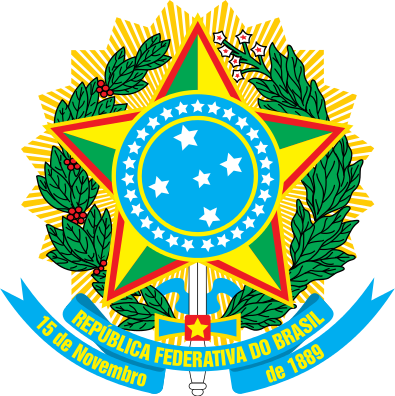Location
Following more than three centuries under Portuguese rule, Brazil gained its independence in 1822, maintaining a monarchical system of government until the abolition of slavery in 1888 and the subsequent proclamation of a republic by the military in 1889. Brazilian coffee exporters politically dominated the country until populist leader Getulio VARGAS rose to power in 1930. By far the largest and most populous country in South America, Brazil underwent more than a half century of populist and military government until 1985, when the military regime peacefully ceded power to civilian rulers. Brazil continues to pursue industrial and agricultural growth and development of its interior. Having successfully weathered a period of global financial difficulty in the late 20th century, Brazil was seen as one of the world’s strongest emerging markets and a contributor to global growth. The awarding of the 2014 FIFA World Cup and 2016 Summer Olympic Games, the first ever to be held in South America, was seen as symbolic of the country’s rise. However, since about 2013, Brazil has been plagued by a shrinking economy, growing unemployment, and rising inflation. Political scandal resulted in the impeachment of President Dilma ROUSSEFF in May 2016, a conviction that was upheld by the Senate in August 2016; her vice president, Michel TEMER, will serve as president until 2018, completing her second term.
Brazil is a federal presidential republic.
Source: CIA World Factbook
Members:
Resources
Displaying 61 - 65 of 180Decree of 20 October 2004 declaring of social interest, for the purposes of the agrarian reform, some properties in Tocantins State.
This Decree, composed of 4 articles, declares of social interest, for the purposes of the agrarian reform, the following rural properties in Tocantins State:"Fazenda Marília", in the Municipality of Colméia; "Fazenda Jatobá", in the Municipality of Cristalândia; "Fazendas Orlândia, São Pedro e Araraquara", in the Municipality of Colméia. The Decree establishes the competence of the National Institute for the Agriculture Reform (INCRA) to promote and supervise the expropriation of the aforementioned rural lands.
Decree of 27 October 2004 on native people administrative borders in the land Diahui, Amazones State.
This Decree, composed of 2 articles, establishes the administrative borders of native people’s Diahui group, located in Diahui land, in the Municipality of Humaitá, Amazones State. This administrative zoning has been promoted by the National Indio Fountation, FUNAI, in compliance with Act No. 6.001 establishing native people Statute.
Implements: Act No. 6.001 establishing the native people Statute. (1973-12-19)
Implements: Decree No. 1.775 of 8 January 1996 ruling on the administrative procedures for zoning native people’s land. (1996-01-08)
Decree of 22 October 2004 declaring of social interest, for the purposes of the agrarian reform, some properties the States of Goias, Maranhão, Pará, and Paraíba.
This Decree, composed of 4 articles, declares of social interest, for the purposes of the agrarian reform, the following rural properties: "Fazenda Piscamba", in the Municipality of Cristalina, Goiás State; "Fazenda Santa Maria", in the Municipality of Mara Rosa, Goiás State; "São Raimundo", in the Municipality of Porto Franco, Maranhão State; "Fazenda Santa Eliza", in the Municipality of Santa Maria das Barreiras, Pará State; "Fazenda Consolação", in the Municipality of Conceição do Araguaia, Pará State; "Catolé, Catolezinho e Gangorra", in the Municipality of Pombal, Paraíba State.
Decree of 5 October 2004 declaring of social interest, for the purposes of the agrarian reform, some properties in Tocantins State.
This Decree, composed of 4 articles, declares of social interest, for the purposes of the agrarian reform, the following rural properties in Tocantins State: "Fazenda 20 Mil", in the Municipality of Augustinópolis; "Fazenda Barra Mansa", in the Municipality of Recursolândia; "Fazenda Serrinha" in the Municipality of Miracema do To cantins; "Fazenda Chave de Ouro", in the Municipality of Augustinópolis. The Decree establishes the competence of the National Institute for the Agriculture Reform (INCRA) to promote and supervise the expropriation of the aforementioned rural lands.
Decree of 27 October 2004 on native people administrative borders in the land Alto Tarauacá, Acre State.
This Decree, composed of 2 articles, establishes the administrative borders of native people’s groups, located in Alto Tarauacá land, in the Municipalites of Jordão and Feijó, Acre State. This administrative zoning has been promoted by the National Indio Fountation, FUNAI, in compliance with Act No. 6.001 establishing native people Statute.
Implements: Act No. 6.001 establishing the native people Statute. (1973-12-19)
Implements: Decree No. 1.775 of 8 January 1996 ruling on the administrative procedures for zoning native people’s land. (1996-01-08)


